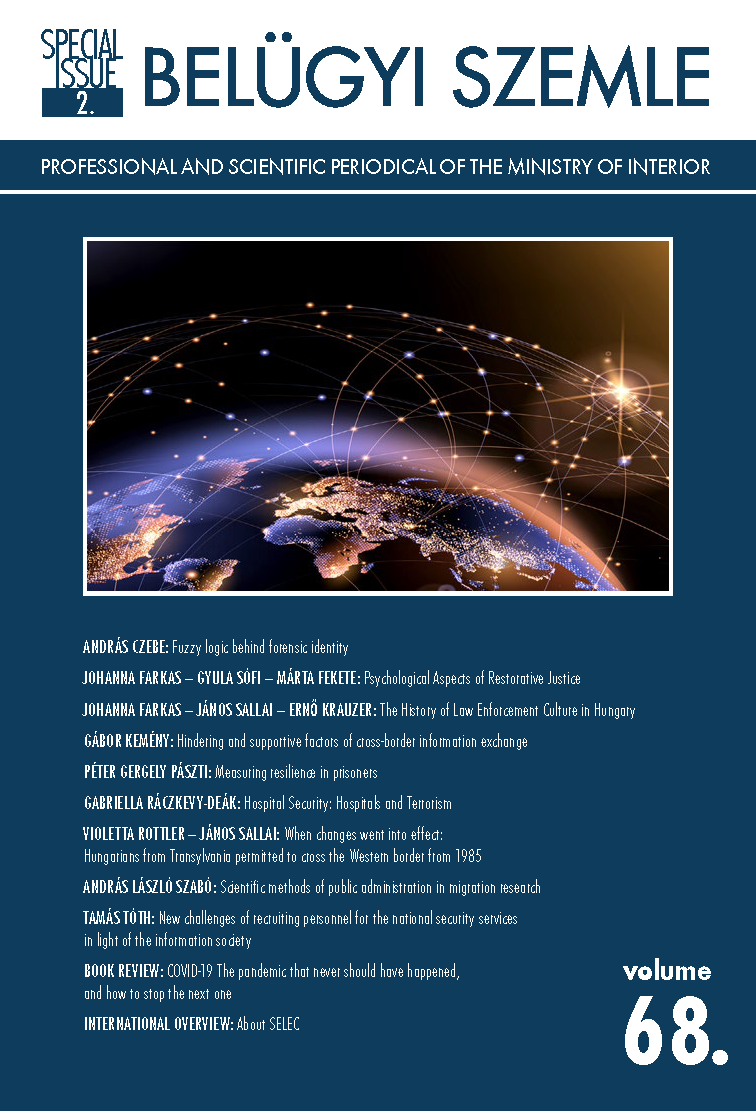Abstract
The aim of this paper is to provide a well-detailed insight into the theories of international law enforcement information exchange and by this to provide guidance to strategic level decision makers how to improve their work and efficiency. The author tries to achieve this goal by introducing the relevant scientific theories in the field of organisational cooperation and adapting these ’civilian’ concepts to the specific law enforcement context. The theoretical evaluation identifies three main environments, organisational, legal and technological (Yang and Maxwell, 2011), to find the supporting and hindering factors of law enforcement cross-border information exchange. Within the organisational environment the author examines how the bureaucratic organisational structure, the diverse organisational culture, trust, reciprocity and leadership influences the information sharing process. Under the policy environment, the impact of the national and EU legislation is introduced. Furthermore, the consequences of various data protection and privacy regulations, lack of harmonised national legislation and diverse interpretation of the policies are outlined under this section. Lastly, the characteristics of the hindering and supporting technological environment is detailed. Here we discuss the issue of interoperability, homogeneity and the state of the Information and Communication Technology (ICT) system and its impact to the exchange process. Based on the findings, the necessary conclusions are deducted and recommendations are elaborated which helps to eliminate barriers and thereby to create a supportive organisational environment. The most important recommendations are: to avoid coercive bureaucracy; to promote transformational leadership style and shared organisational culture; to establish a unified and harmonized legal background for cross-border information exchange; to create an information exchange friendly ICT environment and to ensure interoperability, homogeneity.

